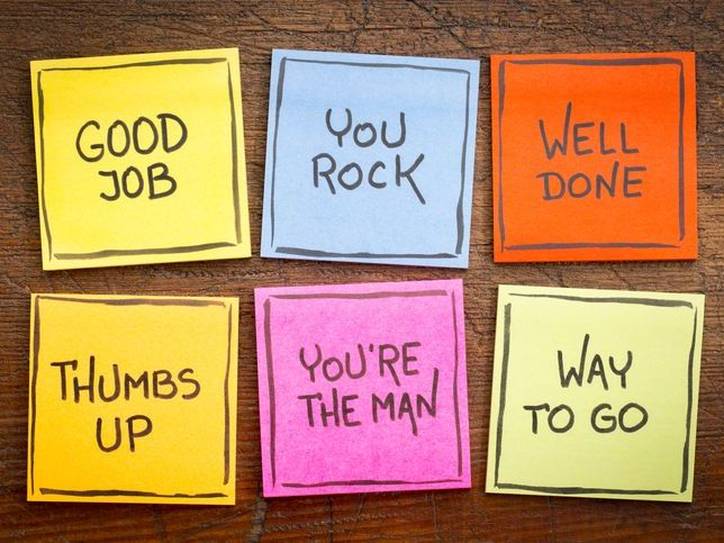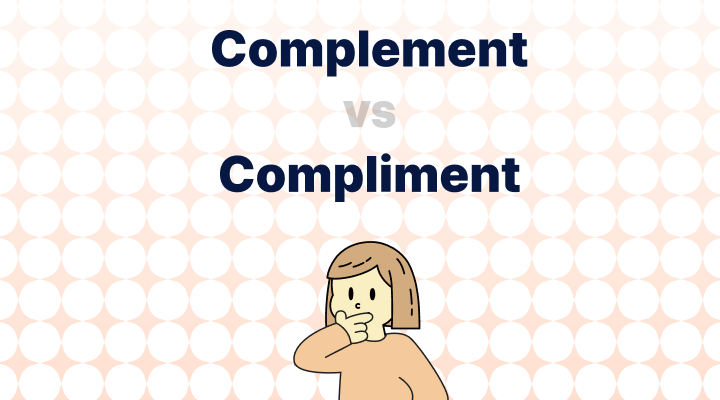Complement means to complete or enhance something else, while compliment means to express praise and admiration.
Complement
Complement means to complete something else or to enhance or improve it. For example, a certain pair of heels can complement a particular dress. That means the heels complete the dress and improve the overall outfit.

Compliment
A compliment is a praise expressing admiration. Say you just came in first place for a sprint. Your friend could praise you by saying, “Wow, you’re amazing!” This is a compliment because your friend is expressing his or her admiration for you and your feat.

Usage
Both complement and compliment can be used as nouns and verbs.
Complement as a noun: The flowers were a perfect complement to the living room.
Complement as a verb: The beige curtains complement the color of the carpet nicely.
Compliment as a noun: She blushed at the compliment from the gentleman.
Compliment as a verb: The judge complimented Ryan’s violin playing.
So now, can you tell the difference between the two?
If a friend says your outfit is cute, is that a complement or compliment?
The correct answer is…
"Compliment". Your friend praised and gave a positive remark about your clothes.
Say your waiter at a restaurant tells you that pepper goes well with the dish you ordered. Is he saying pepper compliments the dish or complements it?
The right answer is…
"Complements". The waiter is saying pepper goes well with the dish you ordered, completing and improving its overall taste.
Origin
The Latin root of the two words complement and compliment is actually the same; both modern words are derived from the Latin complēre, which means to complete or fulfill. The two words, however, diverged to hold different meanings. The word compliment got influence from Romance languages, particularly Italian and French, to become a word that means praise. Meanwhile, complement remained more loyal to its Latin root and holds the meaning of “completing” till this day.
Practice questions
Want to test yourself on if you know the difference between complement and compliment? Try out the practice questions below! The answers can be found below.
- I felt good because a stranger complemented/complimented my makeup.
- This playlist of songs does not complement/compliment the venue.
- This wine is a great complement/compliment to the steak.
- Bill grunted bashfully at my complement/compliment on his shoes.
- The teacher used documentaries to complement/compliment and augment her other teaching materials.
- The long dress complemented/complimented her tall figure.
- A watch is a great complement/compliment to a suit.
- My aunt complemented/complimented me on my new haircut.
- Mike always gets complements/compliments from others on his beautiful eyes.
- I meant it as a complement/compliment, but Shelly got offended instead.
If you are still having trouble knowing when to use complement versus compliment, check out Engram where you can get your English sentences corrected by our AI proofreader.

Answer to practice questions:
- complimented
- complement
- complement
- compliment
- complement
- complemented
- complement
- complimented
- compliments
- compliment














